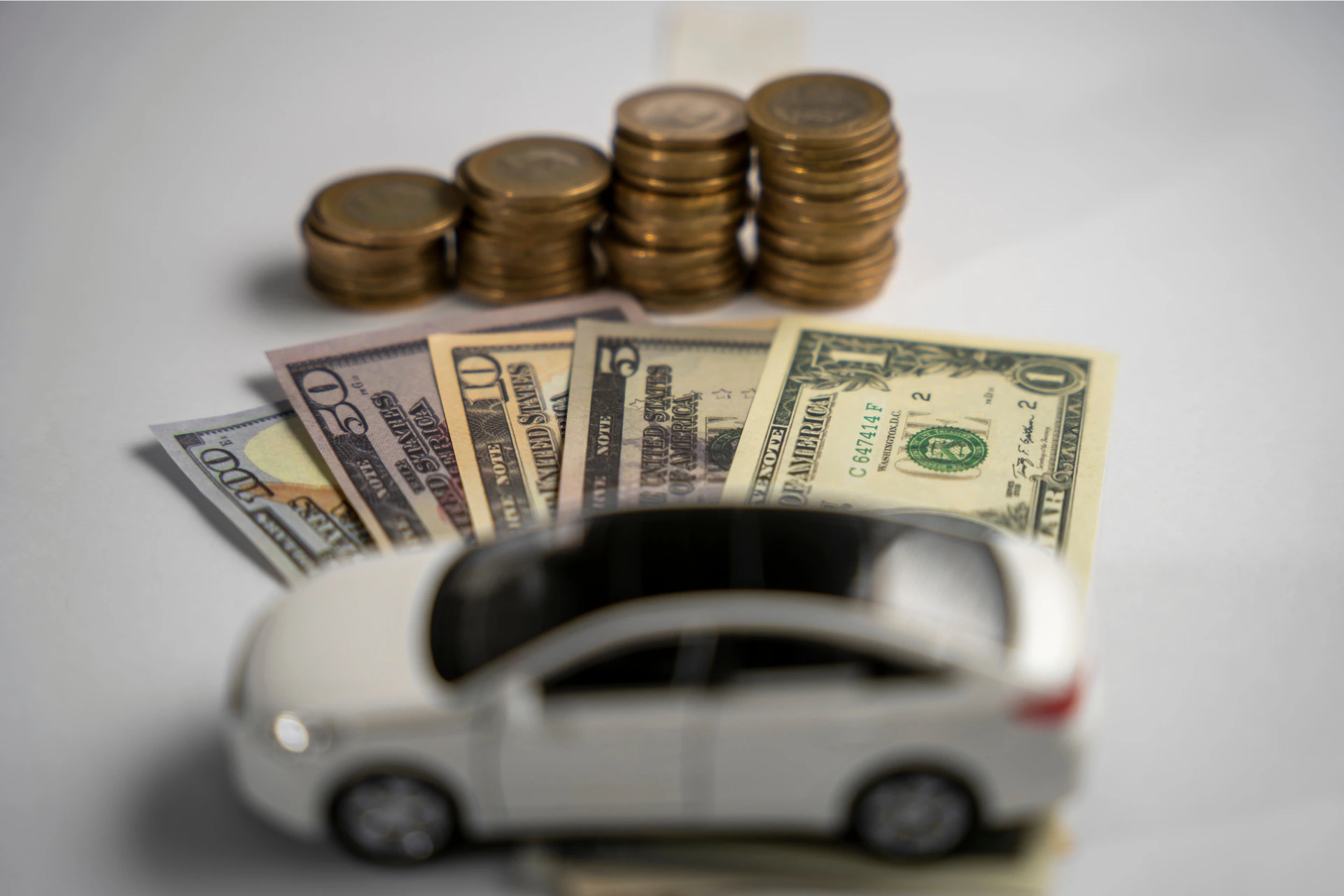When you need to ship a car, getting an accurate car shipping quote is the first and most critical step. It’s not just a number; it’s a detailed breakdown of the services you’ll receive and the cost you can expect to pay. Many people have a common misconception that vehicle shipping has a fixed price, like a package from a delivery service. In reality, an auto transport quote is a dynamic auto transport estimate influenced by a complex web of variables, much like airline ticket prices.
Understanding what goes into your quote is crucial for two main reasons. First, it helps you budget accurately and avoid unexpected charges. Second, it empowers you to make smart choices that can significantly lower your final bill. By knowing the factors that affect auto transport estimated costs, you can strategically influence them to your advantage. This guide will demystify the process, breaking down every component of your quote so you can save money without compromising on service quality.
Ready to find the perfect carrier for your needs? Use Transportvibe – USA’s most comprehensive platform to compare honest reviews, ratings, and real experiences from customers just like you.
Find your ideal transport quote today!
How Car Shipping Quotes Are Calculated: The Complete Process
Wondering how car shipping quotes are calculated?
It’s a multi-step process that a shipping company or broker uses to determine a final price. It starts with a base rate and then adds surcharges and fees based on your specific needs.
Base Rate Determination
The core of your quote is a base rate determined by two primary factors: the distance of the trip and the size/weight of your vehicle. A truck driver has a certain cost per mile for fuel, tolls, and maintenance, and this base rate must cover those operational expenses.
Market-Based Pricing
The base rate is then adjusted based on current market conditions. This is where supply and demand come into play. If a route is popular and many drivers are available, car shipping rates tend to be lower due to competition. If a route is rural or has low demand, prices may be higher to incentivize a driver to take the trip.
Adding Surcharges and Fees
Various factors, which we will explore in detail below, are then added as surcharges. This can include a fuel surcharge to account for fluctuating fuel prices, an inoperable vehicle surcharge for cars that don’t run, or a premium for enclosed transport for extra protection.
The final quote you receive is an estimate. It can change if the details of your shipment change.
For example, if you stated your car was operable but it turns out to be inoperable, a surcharge will be added to the final bill. The quote you sign locks in the price for a specified period, but always read the fine print to understand what might cause a change.
Top 5 Factors That Affect Auto Transport Costs
1. Distance and Location
The single most significant factor in your vehicle shipping cost is the distance between the pickup and delivery locations. However, the relationship between distance and cost isn’t linear. The car shipping cost per mile tends to decrease as the total distance increases.
For short hauls (under 500 miles), costs can be higher per mile (e.g., $1.50-$2.50) because the driver must still cover the cost of a long-term return trip. In contrast, long hauls (over 1,500 miles) are the most cost-effective per-mile rates, often ranging from $0.50 to $0.80 per mile.
Beyond just distance, location matters greatly. Shipping from a major metropolitan hub (like New York City or Los Angeles) to another popular city is almost always cheaper than shipping from a remote, rural area. This is because major routes have a higher volume of traffic, meaning more available carriers and more opportunities for drivers to fill their trailers.
Shipping from a rural location often requires a driver to go out of their way, incurring extra time and fuel costs, which are passed on to you.
2. Vehicle Specifications
The characteristics of your car are a major part of the auto transport quote. The heavier and larger your vehicle is, the more it will cost to ship.
Vehicle Size and Weight
Sedans, coupes, and small SUVs fall into the standard category. They are the cheapest to ship because they are a standard size and weight, allowing carriers to maximize the number of vehicles on a single trailer. Larger SUVs, trucks (like a Ford F-150), and vans are considered oversized.
They take up more space and add more weight, increasing the vehicle shipping cost by 25% or more compared to a standard car. Dually trucks are a special category due to their width and weight and often take up two spots on a trailer, leading to a significant premium.
Luxury and Classic Car Transport Premiums
A luxury or classic car almost always costs more to ship, even if it’s a standard size. This is due to the higher insurance valuation and the increased likelihood that the owner will request an enclosed transport carrier for maximum protection.
Modifications and Conditions
Any modification that affects your vehicle’s dimensions or functionality will impact the price. A car that doesn’t run, steer, or brake requires special equipment like a winch to get on and off the trailer. This adds a surcharge of $150 to $400 or more, and not all carriers can accommodate it.
Vehicle modifications, such as lowered cars, oversized tires, or roof racks, can also be difficult to load and may require special handling, leading to higher costs. If you need to ship more than one vehicle at a time, many carriers and brokers offer a multi-car discount.
3. Shipping Method Selection
The type of carrier you choose is one of the biggest auto transport pricing factors. You have two main options: open carrier and enclosed transport.
Open Carrier Transport
Open Carrier Transport is the most common and cost-effective method, accounting for over 95% of all car shipments. Your vehicle is transported on an open trailer, exposed to the elements. While this offers no protection from road debris or weather, the risk is minimal, and most drivers carry sufficient insurance. An open carrier can typically haul 7-10 vehicles at once, making it a very efficient and affordable option.
Enclosed Transport
This method places your vehicle inside a fully covered trailer, protecting it from all weather and road hazards. Enclosed transport is a premium service and can cost anywhere from 40% to 70% more than open transport. It’s the preferred choice for owners of classic, exotic, or high-value cars where maximum protection is non-negotiable.
4. Season & Timing
When you ship your car can have a huge impact on your final price.
- Seasonal Demand: The auto transport industry has peak seasons and off-seasons. Summer (May to September) and major holidays are the busiest times for shipping. Demand is high, and carriers are booked solid, leading to higher car shipping rates. Fall and winter (excluding holiday weeks) are generally the cheapest times to ship.
- Advance Booking vs. Rush Delivery: Booking your shipment at least 2-4 weeks in advance is one of the best ways to get the lowest possible car shipping rates. On the other hand, rush or expedited delivery (shipping in under a week) can carry a hefty premium, sometimes adding 20-30% to the total cost.
- Flexible Delivery Windows: Offering a flexible pickup and delivery window can also save you money. A “guaranteed” pickup date will be more expensive because the carrier must commit to a specific time, whereas a more flexible window gives them the freedom to fill the last spot on their trailer more efficiently.
5. Service Level Choices
The level of convenience you choose for your shipment also affects the price.
- Door-to-Door vs. Terminal-to-Terminal: Door-to-door is the industry standard and most convenient option, with the driver picking up and dropping off your vehicle as close to your specified address as safely possible. Terminal-to-terminal is a cheaper option, but far less common. You drop your vehicle off at a designated terminal and pick it up at another. The savings are often minimal, and the hassle of arranging transportation to and from the terminals may not be worth it.
- Standard vs. Expedited Shipping: As mentioned, expedited shipping is an optional, premium service for those who need their vehicle moved quickly. It costs more but offers a faster turnaround time.
- Insurance Coverage: While all licensed carriers are required to carry a minimum amount of insurance, it’s crucial to understand the coverage details. Some companies may offer higher levels of supplemental insurance for an added fee, especially for high-value vehicles.
Is your car inoperable? Do you need to ship a luxury vehicle? Explore the best companies for specific transport needs on our dedicated service pages.
Why Car Shipping Quotes Vary Between Companies
If you get three different quotes for the same shipment, chances are they will all be different. Understanding why car shipping quotes vary is crucial to making an informed decision. While the core factors like distance and vehicle type are standard, the way each company operates and prices its services introduces significant differences in your final auto transport quote.
Business Model: Broker vs. Carrier
This is arguably the most significant differentiator.
- Carriers are the trucking companies that own their own fleet of trucks and employ the drivers who physically transport your vehicle. When you get a quote directly from a carrier, you’re getting a price that covers their operational costs and profit margin, with no middleman fee. This can sometimes lead to a lower car shipping rate, but carriers often have limited routes and availability.
- Brokers are logistics companies that act as a middleman. They do not own trucks but have a large network of carriers. Their job is to find a carrier that can transport your vehicle and then add a commission on top of the carrier’s price. While this might make your initial auto transport quote slightly higher, brokers offer unparalleled flexibility and can find a carrier for almost any route at a moment’s notice.
For a more detailed look at this topic, check out our guide on how broker vs. carrier pricing differs and why.
Operational Costs and Volume
Just like any business, auto transport companies have different operational costs. A large, well-established company with a high volume of shipments may have higher overhead but can often offer more competitive car shipping rates due to its ability to secure lower prices from its network of carriers.
Conversely, a smaller company might have lower overhead but less power to negotiate with carriers, which could affect the final vehicle shipping cost.
Service Quality and Reputation
Reputation plays a big role in auto transport pricing. Companies with a long-standing history of reliability, professional customer service, and a low rate of damaged vehicles often charge a premium for their service.
This higher car shipping rate reflects the peace of mind and assurance you receive. These companies invest in better technology, such as real-time GPS tracking and dedicated support teams, which adds value and is factored into their quotes.
A company with a poor reputation or a history of complaints may offer an attractively low price to win your business, but this often comes with a high risk of unexpected charges, delays, or poor service.
Included Insurance Coverage
While all licensed carriers are required to carry a minimum amount of insurance, the level of coverage can vary. Some companies offer more comprehensive coverage at no extra charge, while others may offer basic coverage and require you to purchase additional protection for an added fee.
Always clarify the insurance policy to understand exactly what is covered and what is not, as this can change the final auto transport pricing.
Strategic Ways to Lower Car Shipping Quotes
Looking for cheap car shipping quotes doesn’t mean you have to sacrifice quality. With a few strategic moves, you can significantly reduce your costs.
- Timing Your Shipment for Maximum Savings: Aim for the off-season (late fall or winter) and avoid peak times. Booking your shipment at least 2-4 weeks in advance is one of the most effective ways to lower car shipping quotes.
- Be Flexible with Pickup and Delivery Strategies: If you can be flexible with your pickup and delivery dates, you can often save money. Give the company a wide window (e.g., a 7-day pickup window) and let them fit your shipment into their most efficient schedule.
- Choose the Right Service Level: For most standard vehicles, open transport is the most economical choice. Unless you have a luxury or classic car, there’s no need to pay for the premium of enclosed shipping.
- Prepare Your Vehicle for Shipping: Remove personal items from the vehicle, as many carriers prohibit them, and they can add extra weight, incurring a premium. Also, ensure your car is in good working order, as a running car costs less to ship than an inoperable one.
- Inquire About Discounts and Negotiate: Don’t be afraid to ask about specific discounts for seniors, students, or military members. While not every company is open to negotiation, it doesn’t hurt to ask if they can match a competitor’s price if you’ve received a few quotes.
A car shipping calculator is a great starting point for preliminary budgeting. These online tools use algorithms based on general industry data to give you a rough estimate. You input your zip codes, vehicle details, and shipping date, and the calculator provides a general price range.
Get Your Instant Car Shipping Quote Now!
Red Flags: When Cheap Car Shipping Quotes Are Too Good to Be True
While everyone wants a cheap price, a car shipping quote that seems too good to be true almost always is.
Unrealistically Low Pricing
If a quote is significantly lower than all others you’ve received (e.g., 30-50% cheaper), it’s a major warning sign. This is a common bait-and-switch tactic used to get you to sign, after which hidden fees will appear.
Upfront Payments and Pressure Tactics
Scammers often require a large upfront deposit via a wire transfer or another untraceable method before any service is provided. A reputable company will either not charge a deposit or will charge a small one only after a carrier has been secured. Be cautious of companies that pressure you into booking immediately, claiming the quote is only valid for a few minutes.
Lack of Transparency
A legitimate company will be transparent about its licensing and insurance. You should be able to verify their information through the FMCSA (Federal Motor Carrier Safety Administration) database. You can search for a company’s registration and safety records on the official FMCSA website. For more advice, read our blog on how to spot a trustworthy auto transport review.
Top Queries About Vehicle Shipping Quotes
What is the most economical way to ship a car?
The most economical way to ship a car is by choosing open transport and being flexible with your pickup date. Booking several weeks in advance and avoiding peak seasons will also help lower your final cost.
How much is it to ship a car from AZ to FL?
The cost to ship a car from AZ to FL typically ranges from $1,500 to $2,300. This is a popular cross-country route, but the price can fluctuate with market demand and seasonal changes.
How much does it cost to move a car 1,000 miles?
The cost to move a car 1,000 miles averages between $700 and $1,100. The cost per mile decreases with distance, making a 1,000-mile trip more efficient than shorter hauls.
Are car delivery services worth it?
Car delivery services are often worth it to save time, reduce stress, and prevent added mileage on your vehicle. The cost can be comparable to driving yourself when you factor in gas, lodging, and wear and tear.
Do I need insurance when shipping my car?
Yes, you do. All licensed carriers must have liability insurance, but it’s important to ask about the specifics. You should verify that the company’s insurance adequately covers your vehicle during transport.
Can I put my car on Amtrak?
Yes, you can put your car on the Amtrak Auto Train. However, it is only available for trips between Lorton, Virginia, and Sanford, Florida. It’s an enclosed option, so it can be more expensive than open carriers.
What is the average cost to ship a car across the country?
The average cost to ship a car across the country ranges from $1,000 to $1,500. This vehicle shipping cost varies based on your car’s size, transport type, and the time of year you are shipping.
Is it cheaper to ship a car that doesn’t run?
No, it is more expensive to ship a car that doesn’t run. An inoperable vehicle requires specialized equipment like a winch, which adds a surcharge of $150 to $400 to the total transport cost.
Making Smart Car Shipping Decisions
Navigating the world of car shipping quotes may seem daunting, but by understanding the factors that influence them, you can take control of the process. Remember, the price is not the only thing that matters. Balance cost with quality, read reviews, and ask plenty of questions. Your goal is to find a reliable company that offers a fair price and provides transparent service. By doing your research, being strategic with your timing, and knowing what to look for, you can get the best possible deal and ensure a stress-free experience for your car’s journey.
Stop guessing what your transport will cost. Get an instant, accurate quote right now and find the perfect company for your vehicle’s needs.















